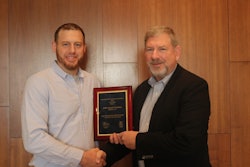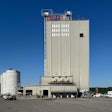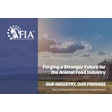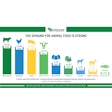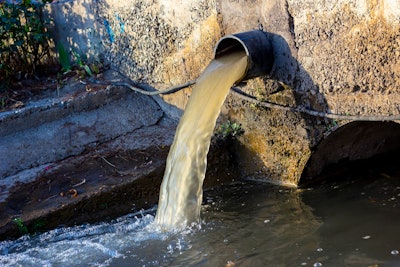
A company that converts used cooking oil and vegetable byproducts into animal feed ingredients is not entitled to insurance coverage due to its insurance policy’s pollution exclusion, a U.S. Court of Appeals ruled.
In Gold Coast Commodities Inc. v. Travelers Casualty and Surety Co. of America, the U.S. Court of Appeals for the Fifth Circuit found that the unambiguous wording of the policy’s pollution exclusion means Travelers did not have a duty to defend Gold Coast in lawsuits claiming the company dumped pollutants into the local sewer system.
“An insurance policy’s pollution exclusion deters deliberate or negligent behavior that leads to environmental harm,” the ruling said. “When we hold that a pollution exclusion excludes the insured from coverage, we protect the insurer’s right to disincentivize corporations from engaging in bad faith actions with a known environmental impact. This case arises from claims asserted against an insured and, due to a pollution exclusion, those claims fall outside the insurance policy’s reach.”
Gold Coast, based in Brandon, Mississippi, was insured under Travelers’ policy from June 2016 through June 2019. In July 2018, the city of Brandon filed suit against Gold Coast alleging it dumped “significant amounts of high-temperature, corrosive, low-pH wastewater into the city’s sewer system.” These actions are alleged to have occurred during the policy period.
In June 2021, the City of Jackson filed suit in the Circuit Court of Hinds County against Gold Coast and its principals alleging that Gold Coast dumped “high-temperature and corrosive” industrial waste into the city’s sewer system. These actions are also alleged to have occurred during the policy period.
Brandon and Jackson seek to recover damages from negligence resulting from the discharge or release of pollutants.
Travelers denied coverage against Brandon and Jackson, citing the pollution exclusion in the policy, which states Travelers “will not be liable for loss for any claim based upon or arising out of the actual, alleged or threatened discharge, dispersal, seepage, migration, release or escape of any pollutant.”
The policy defines “pollutant” as any “solid, liquid, gaseous or thermal irritant or contaminant, including smoke, vapor, soot, fumes, acids, alkalis, chemicals and waste. Waste includes materials to be recycled, reconditioned or reclaimed.”
A district court found that the claims against Gold Coast were excluded from coverage under the pollution exclusion. The appeals court affirmed the district court’s opinion.
“As the district court explained, the deliberate discharge of toxic industrial waste ‘is precisely the type of activity to which (Traveler’s policy pollution exclusion) was intended to apply,’” the appeals court ruling said. “The policy is not ambiguous. Because the policy is not ambiguous, the claims are excluded from coverage.”





